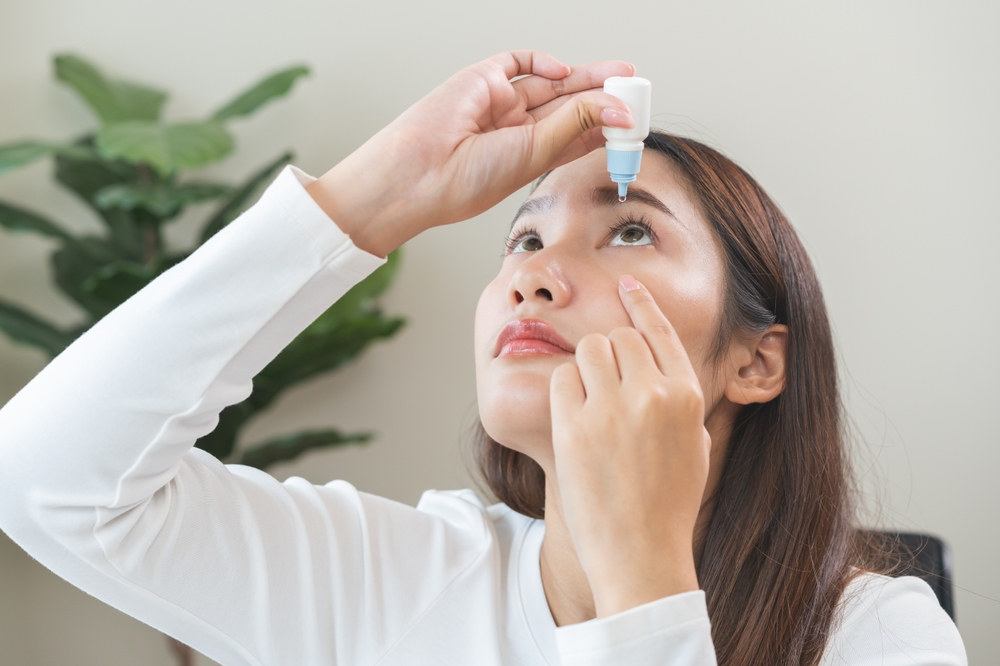What Are The Best Eye Drops for Severe Dry Eyes?
If you’re struggling with severe dry eye symptoms, finding the right eye drops can feel overwhelming. With countless options lining pharmacy shelves, how do you choose the most effective treatment for your specific needs?
The key to managing severe dry eyes lies in understanding your specific type of dry eye and matching it with targeted treatment options. Keep reading to learn more about how you can find relief from severe dry eyes.
What is Dry Eye?
Dry eye results from destabilization of the tear film, which is the thin protective layer of oil, water, and mucus coating your eye’s surface. When any component of this delicate system is deficient, you may experience persistent irritation, burning, blurred vision, or that characteristic gritty sensation that makes daily activities uncomfortable.
Unlike mild dryness, which responds well to basic artificial tears, severe dry eyes typically involve inflammation, significant tear film deficiency, or underlying medical conditions that require specialized treatment approaches.
Types of Eye Drops for Severe Dry Eyes
If you have severe dry eye, your eye doctor may recommend various eye drops, including:
Preservative-Free Artificial Tears
For individuals with severe dry eye, preservative-free formulations are crucial. When you’re using drops multiple times daily, which severe cases often require, preservatives can actually worsen irritation.
Mid Ohio Eye typically recommends preservative-free options for patients using lubricants more than four times daily. Specifically, look for preservative-free drops designed to treat severe dry eye symptoms.
These formulations often contain higher concentrations of lubricating agents and may include specialized ingredients designed to address inflammation and promote healing.
Lipid-Based and Oil-Containing Eye Drops
Evaporative dry eye, which is the most common form affecting approximately 85% of dry eye patients, occurs when the oily layer of your tear film becomes deficient. This causes tears to evaporate too quickly, leaving your eyes feeling dry and irritated throughout the day.
For this type of severe dry eye, ophthalmologists often recommend drops containing lipid or oil-based ingredients. These formulations help restore the protective oily layer, reducing excessive evaporation and providing longer-lasting relief than traditional water-based artificial tears.
Hypotonic and Hypoosmolar Formulations
Aqueous-deficient dry eye occurs when your body doesn’t produce enough tears, often associated with autoimmune conditions like Sjögren’s syndrome. This form of severe dry eye requires drops that increase tear quantity and restore proper hydration to the eye’s surface.
Hypotonic or hypoosmolar drops are lighter, thinner formulations that help re-wet the ocular surface and increase overall tear volume, providing relief for eyes that struggle with inadequate tear production.
Gel Drops and Ointments
For severe dry eye cases, nighttime treatment becomes crucial for healing and comfort. Gel-based drops offer longer-lasting relief than liquid formulations, making them ideal for evening use when temporary vision blurriness won’t interfere with activities.
These thick formulations can provide hours of protection and are particularly beneficial for patients with incomplete eyelid closure or those who experience significant discomfort upon waking. The trade-off between duration and clarity means that strategic timing becomes essential.
Using gel drops during relaxation periods and ointments at bedtime allows severe dry eye patients to maximize therapeutic benefits while maintaining functional vision when needed.
Prescription Options
While over-the-counter options can provide symptom relief, severe dry eye often requires prescription treatments that address underlying inflammation and promote natural tear production. Your eye doctor may recommend anti-inflammatory drops, immunomodulators, or other prescription medications, in addition to artificial tears, for comprehensive management.
Prescription drops work differently from lubricating drops by targeting the inflammatory processes that contribute to severe dry eye. These medications can significantly improve natural tear production over time, potentially reducing the need for artificial tears.
Some patients with severe dry eye may also benefit from autologous serum drops, which are specially prepared drops made from the patient’s own blood serum. These provide natural growth factors and proteins that support the healing of severely damaged eye surfaces.
Don’t let severe dry eye symptoms control your life. Schedule an appointment at Mid Ohio Eye in Columbus, OH, today!










